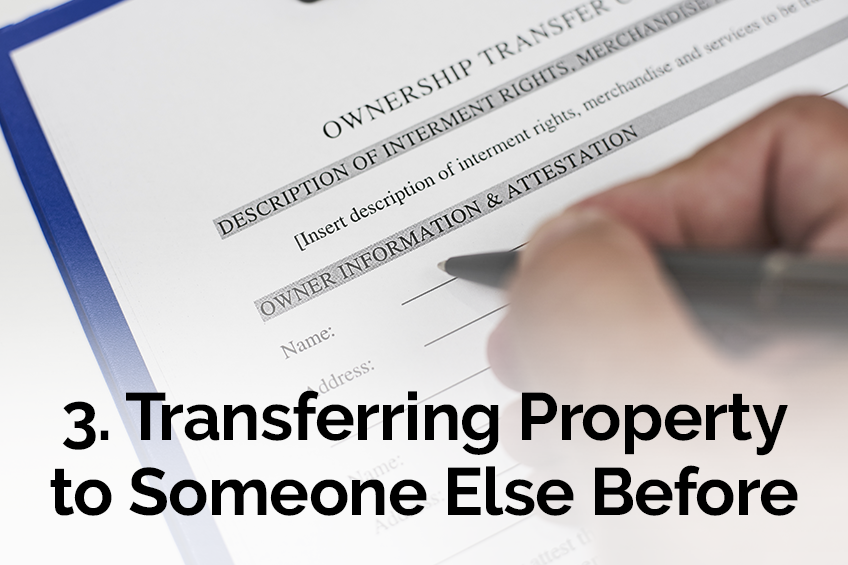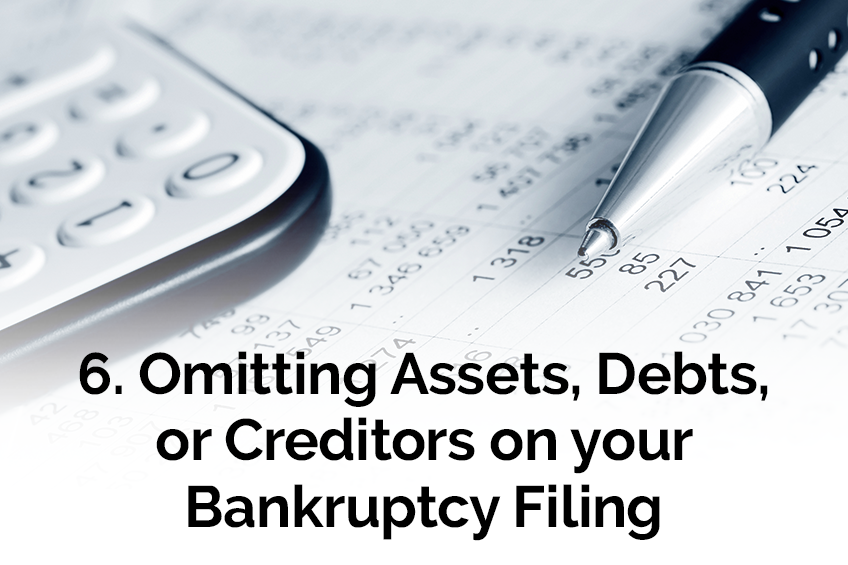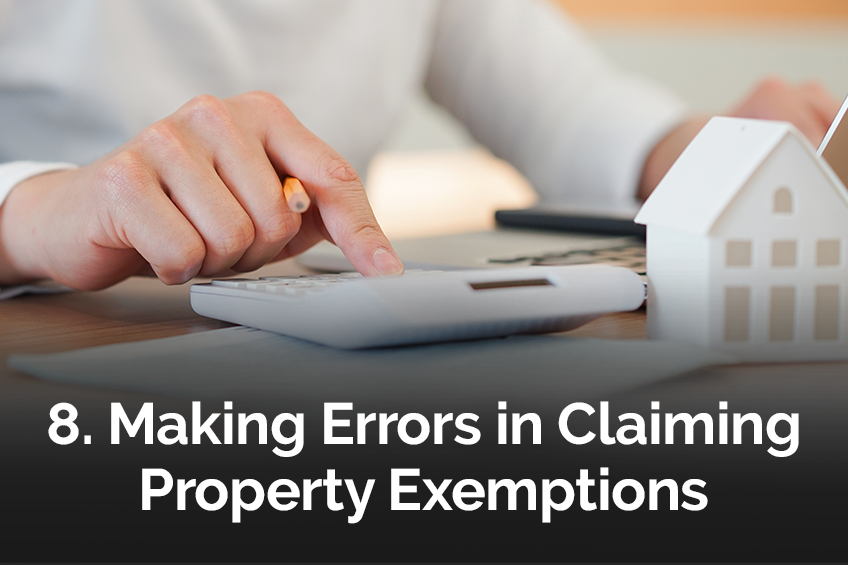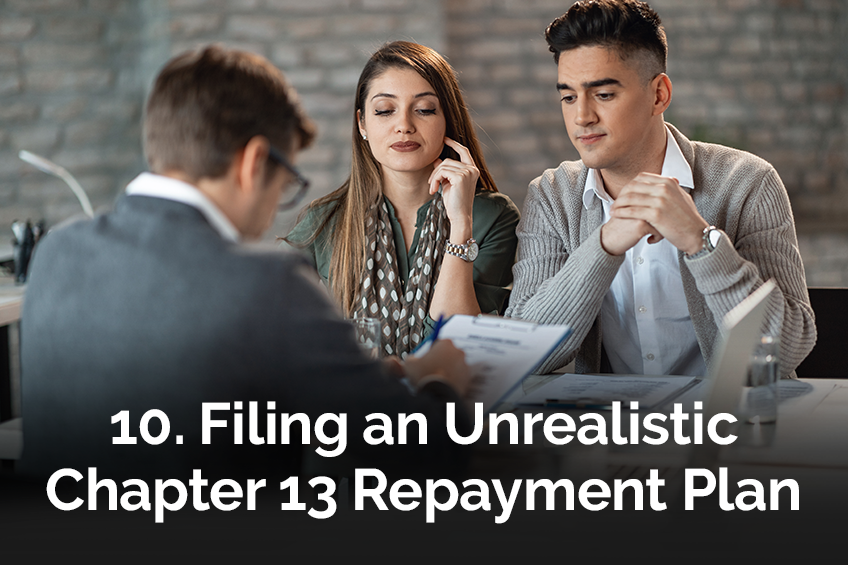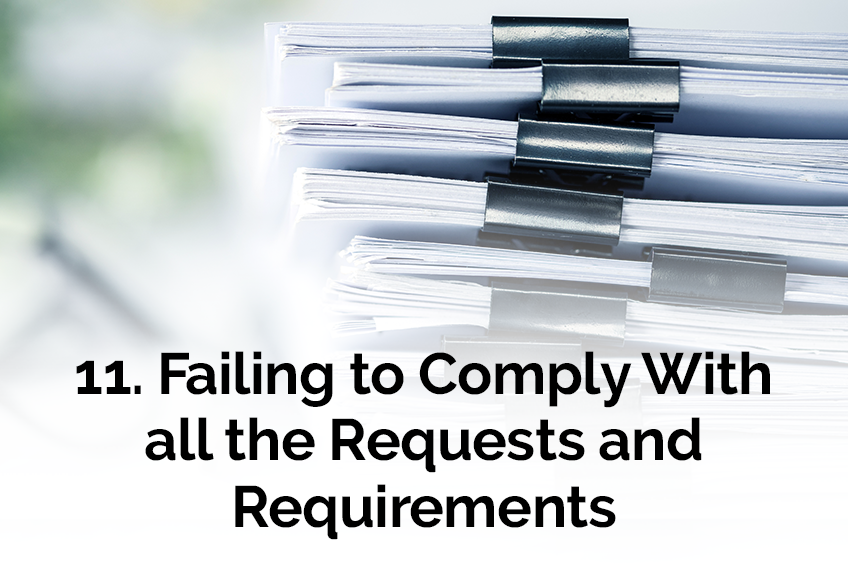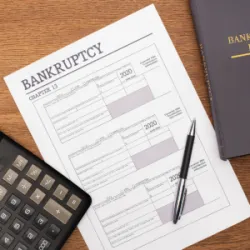
In Georgia, as in other states throughout the country, you are allowed to file for bankruptcy without the help of an attorney. However, this is not advisable.
Whether you’re filing for Chapter 7 or Chapter 13, a court has to approve your filing and the proposed terms of your bankruptcy. There are many missteps you can make that could sabotage the process, complicate it unnecessarily, or cost you money in the long run.
The stakes are high, because the terms of your bankruptcy can affect every aspect of your finances for years to come.
A knowledgeable bankruptcy attorney can help you navigate the minefield, avoid the common traps, and ensure that the terms of your bankruptcy give you the best possible chance for a fresh start.
Here are some of the most common mistakes people make when trying to handle the process themselves.

Picking the Wrong Type of Bankruptcy
As an individual, there are two types of bankruptcy you can pursue: Chapter 7 and Chapter 13. They’re quite different and designed for people in very different financial situations. Both have various pros and cons.
Which one you choose could have a profound effect on your finances for years to come. This effect could be damaging if you didn’t pick the right type for your finances to begin with.
A knowledgeable bankruptcy attorney can help assess your financial situation, discuss the pros and cons of each with you, and help you pick the one that will give you the best shot at resetting your finances and moving on.
Running up Credit Card Debt Before Filing
Especially if you’re filing for Chapter 7 — which, if approved, involves discharging most types of debt entirely — it might be tempting to use your credit card immediately before the filing. After all, what does it matter if your debts will soon be discharged?
Actually, it matters a lot. This kind of spending can sabotage your bankruptcy filing and may get you accused of fraud.
If you buy a luxury item with a credit card (or a cash advance from a credit card) within 90 days of your bankruptcy filing, it’s likely to be seen as fraudulent. This 90-day period is referred to as the “presumption of abuse” period.
If the court decides your spending was fraudulent and that you bought luxury items with the intention to have the bill discharged in your bankruptcy filing, you may be required to pay back not only the debt, but the creditor’s court costs and attorney fees.
This doesn’t mean you have to stop all spending on your credit cards within 90 days of your bankruptcy filing. Normal household expenses should be safe, but you’ll need to keep your spending within normal limits.
A bankruptcy attorney can advise you on how to spend safely in the weeks leading up to the filing so you don’t inadvertently sabotage your case.
Transferring Property to Someone Else Before Filing
It’s a common misconception that you lose all or most of your property in a Chapter 7 bankruptcy in exchange for having your debt wiped clean. In reality, about 90% of filers get to keep all their assets, but most laypeople don’t realize that initially.
Some people try to keep assets by transferring their property to someone else, usually a family member. Often, it’s for less than the property is worth. This is often considered fraudulent.
During your meeting of creditors, your trustee will ask you about any transfers of property you made within the last two years. Failing to disclose them could have legal consequences, including a charge of perjury.
There are a number of legal ways to protect your property in a Chapter 7 bankruptcy. A knowledgeable bankruptcy lawyer can help you retain your property in a non-fraudulent way, and consult with you on how to transfer property safely.
Paying off Money You Borrowed From Friends and Family Before Filing
Paying your debt to a kind friend or family member who helped you in a difficult time is the responsible thing to do, right? Not necessarily, if you’re filing for bankruptcy.
If you’re pursuing bankruptcy, your debts to friends and family are probably not the only ones you have. You may also have credit card debt, personal or business loans, and other financial obligations.
The bankruptcy court will want you to treat all your creditors equally and fairly — and paying off friends and family members first means that you have less money to put toward your other debts. It’s giving those closest to you preferential treatment.
There can be consequences to paying off a loan from a friend or family member too close to your bankruptcy filing — not just for you, but for them. If you pay back one of these friends-and-family loans within a year before your filing, the trustee might sue the friend or family member to recover that money and put it toward your other debts.
A knowledgeable lawyer can help you avoid this and other pitfalls that could have unforeseen consequences, both for you and for those close to you.
Filing for Bankruptcy at the Wrong Time
When filing for bankruptcy, timing is very important.
For instance, getting married too soon before your filing can tank your bankruptcy. That’s because the court will assess your income to determine whether you qualify for Chapter 7, or decide the terms of debt repayment under Chapter 13.
If you’re single, they will only consider your income. But if you get married, your spouse’s income counts as well.
If you’re looking to discharge tax debt in your bankruptcy, timing is also important—because there are strict and complex rules about which tax debts can be discharged and when.
In addition, it’s generally a bad idea to file for bankruptcy at the same time you’re expecting to receive a large cash payout of any kind — for instance an inheritance, an insurance payout, or a lawsuit settlement.
If any of these comes in too close to your bankruptcy filing, you could be compelled to hand it over to the bankruptcy estate.
Your attorney can help assess any timing issues that might affect your bankruptcy and consult with you regarding the best time to file for bankruptcy while avoiding these pitfalls.
Omitting Assets, Debts, or Creditors on your Bankruptcy Filing
It’s important not to leave anything out in your bankruptcy filing.
If you leave an asset off your application, it’s likely the bankruptcy trustee will find out eventually. And when they do, you’d better hope they believe that it was an innocent mistake.
If they think you did it on purpose, the asset might be seized and your bankruptcy could be denied without discharging your debts.
If you forget to include one of your debts or creditors, it’s possible they’ll be left out of the terms of bankruptcy — and you’ll have to pay them back as usual, even if it’s debt that could have been discharged in your bankruptcy.
An attorney can help make sure your application is filled out correctly and that you don’t leave anything out.
Undervaluing Assets or Classifying Assets and Debts Incorrectly
You’re required to list the accurate replacement value of all assets on your bankruptcy filing. The trustee will be checking your work, and you may face allegations of fraud if you get it wrong.
In addition, both debts and assets need to be correctly categorized. Assets can be either real or personal property, and debts either secured, unsecured, or priority. Getting it wrong could put your bankruptcy case at risk.
Your attorney can help ensure that all assets and debts are categorized correctly on your application, and that the replacement values you list for your assets are correct.
Making Errors in Claiming Property Exemptions
Property exemptions allow you to hang on to your assets in a Chapter 7 bankruptcy. However, the rules on what property you’re allowed to keep are complex, and often depend on how much the property is worth and how much equity you have in it.
There are many pitfalls involved in claiming property exemptions — from filing late to improperly listing the exemption or failing to respond effectively to a trustee’s objection.
Your attorney can explain to you which exemptions you qualify for, help you claim them effectively, counter any objections from the trustee, and raise the chances that you’ll be able to keep your assets — even in a Chapter 7 bankruptcy.
Failing to Properly List Your Income
Your income is a big factor in determining the terms of your bankruptcy — and which type of bankruptcy you qualify for. You will be expected to disclose all sources of income, including infrequent part-time jobs.
If you leave out a source of income — even inadvertently — it’s likely the trustee will find out. This can bring all kinds of unwanted consequences, including charges of fraud, the dismissal of your case, and scrutiny from the United States Trustee’s Office.
Your attorney can help ensure that you leave nothing out of your application that could get you in trouble later — including all sources of income.
Filing an Unrealistic Chapter 13 Repayment Plan
Chapter 7 bankruptcy gives you an opportunity to discharge most of your debts, but you have to pass an income means test to qualify for it.
If you don’t qualify, you can file Chapter 13 — which involves developing a realistic three-to-five-year repayment plan to pay back some or all of your debts.
Under Chapter 13, you get to propose a payment plan that you think will work for you. However, the court has to agree that it’s realistic, and it also has to meet all the legal requirements involved. This isn’t always easy.
For the court to approve your Chapter 13 repayment plan, it has to meet certain standards — such as ensuring all your priority debts are paid, and that your unsecured lenders will receive at least as much as they would have if you’d declared Chapter 7 bankruptcy.
A bankruptcy attorney can help you craft a plan that will pass muster with the court, and that you can also live with.
Failing to Comply With all the Requests and Requirements
Bankruptcy is a long and involved process that will ask a lot of you.
Both Chapter 7 and Chapter 13 bankruptcies require you to take credit counseling and financial management classes as part of the process.
The rules for which courses are approved, and the timing of these classes, can be confusing for many people. But if you don’t meet these requirements and file the appropriate certificates of completion on time, it could jeopardize your bankruptcy case.
In addition, your trustee may request numerous documents from you as part of the bankruptcy proceedings. If you fail to comply with these requests or can’t provide requested documentation, you could have your case dismissed.
Your attorney can help you keep track of requests, track down the required documents, and make all the class requirements crystal-clear — so you don’t have your bankruptcy case dismissed on a misunderstanding or technicality.
Missing Important Meetings
The meeting of creditors is an important part of a bankruptcy proceeding. During this meeting, the trustee reviews your finances and asks you questions about your debts. Sometimes representatives from your creditors are present as well.
It’s not the most enjoyable activity, but it’s important not to skip it — because doing so could get your case dismissed.
Your attorney can help you understand what to expect and prepare for the meeting of creditors, so the process won’t feel quite so challenging.
Hire a Knowledgeable Bankruptcy Attorney
Don’t file for bankruptcy alone. An expert bankruptcy attorney can help you navigate the many pitfalls and avoid mistakes that could damage your bankruptcy case, affect your finances for years to come, or even result in serious charges.
At Speights Law, we’ve helped hundreds of clients avoid the potential pitfalls of filing for bankruptcy — and achieve the best conditions for a fresh financial start. We can help you, too. Call us at 770-479-1500 for a confidential consultation today.



